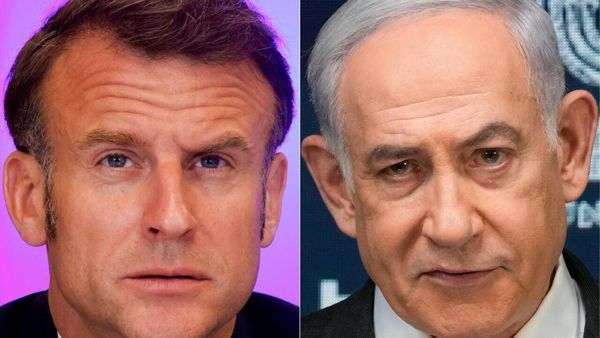
A man who went blind after drinking alcohol in Laos is working with other affected families to campaign for awareness of methanol poisoning.
Calum Macdonald had a night out in Vang Vieng in November last year and the next day his vision was “engulfed in this blinding white light”, he told BBC Breakfast.
Police in Laos have previously detained several people in connection with the deaths of six people who are believed to have been poisoned, including Simone White, 28, from Orpington, Kent.
Methanol is sometimes used by disreputable bars as a cheaper alternative to ethanol but can cause severe poisoning or death.
Mr Macdonald was at a hostel where free whisky and vodka shots were offered, and he mixed them with soft drinks, he said.
He told how he was on a bus crossing into Vietnam when he noticed something was wrong.
He told BBC Breakfast: “The point at which I really started to notice some strange side effects was we briefly got off the bus to cross the border into Vietnam, and we went through the border office – we had to fill out a number of forms to get across to the other side – and at that point, sort of my entire vision was engulfed in this blinding white light.
“And I just thought, you know, this is very strange. I couldn’t actually see where I was walking.”
He added: “We arrived in Hanoi, and at that point, the kind of white light in my eyes had diminished, and it wasn’t until we got to our hotel room and my friends and I were sitting in the room, and I said to my friends, why are we sitting in the dark here? Let’s turn on a light. And they informed me that the light was, in fact, already on.”
Mr Macdonald then went to hospital and said on the journey there he “really started to struggle to breathe” and could “barely get my words out”.
He said a number of tests were carried out initially but it was not until he got back to England when he was in hospital and they “really sort of indicated that it was definitely related to something I’d been drinking”.
Mr Macdonald is now speaking out as he wants information to be available to people about methanol poisoning, especially students who might be preparing to go on a gap year.
He said: “I think I definitely feel a sense of responsibility as someone who’s been lucky enough to survive this, to try and get the message out. Because I know certainly, if I’d known about it, I wouldn’t be in this situation.
“And I know I have a lot of friends that have also done similar sort of gap years in travelling around even that particular area. And so definitely, I think it’s quite important.
“I’ve had the opportunity to speak to a number of other families that have been affected by this, and they’re far more knowledgeable and have been campaigning for awareness for a lot longer than I have been involved. And what they tend to say generally is that sometimes the advice isn’t put in strong enough terms.
“And so I think, I guess if I was to put out a recommendation to people, although I’m certainly not an expert or a medical professional, I would probably say that if you did want to drink alcohol in some of the affected countries, probably just to avoid spirits entirely.
“I think it would be nice, even if we could get some more information directly into universities, because I think that’s the age of people that are really considering doing these kinds of trips, I think that would be a great thing.”
A spokesperson for the Foreign, Commonwealth and Development Office said: “Methanol poisoning and counterfeit alcohol are a serious problem in some parts of the world and we continue to work closely with the relevant local authorities and the travel industry to tackle this complex issue.
“We seek to make clear the risks to British people travelling abroad and we raise awareness through our travel advice and Travel Aware campaign.”







